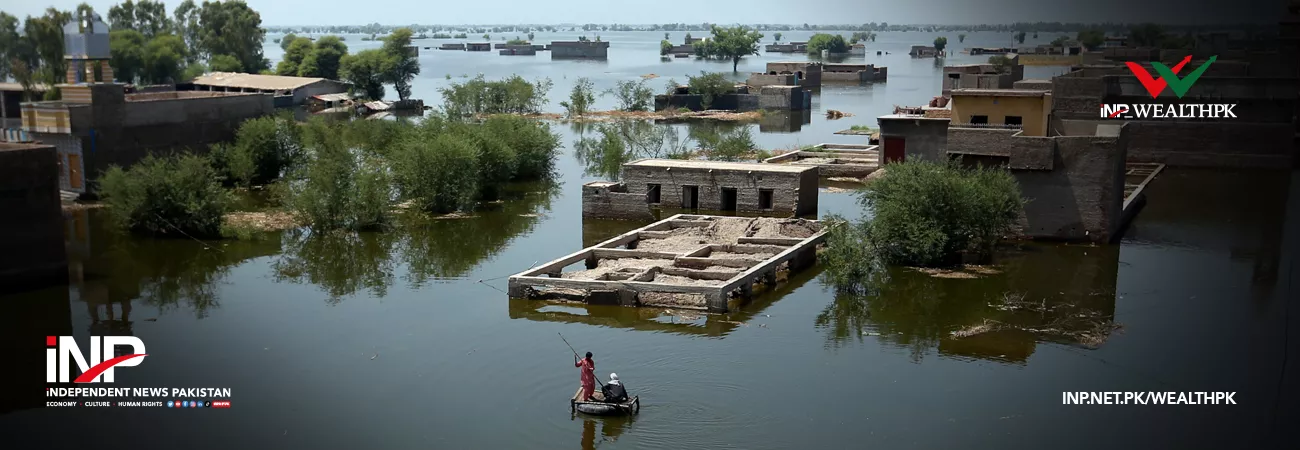INP-WealthPk
Following Pakistan's disastrous floods this year, a $554 million finance package, comprising new and reallocated money, has been approved to aid with recovery and reconstruction works as well as to increase the country's resilience to natural disasters and climate change. The funding, which comes in the form of a $475 million loan and a $3 million grant for technical assistance from the Asian Development Bank (ADB), and a $5 million grant from the Government of Japan, will help the flood-affected provinces of Balochistan, Khyber Pakhtunkhwa, and Sindh rebuild their irrigation, drainage, flood risk management, on-farm water management, and transportation infrastructure.
Additionally, climate and disaster resilience strategies will be included in the infrastructure design of the ADB’s Emergency Flood Assistance Project. ADB has repurposed an extra $71 million from existing loans to support the government’s flood-response efforts. According to ADB Director General for Central and West Asia Yevgeniy Zhukov, this year's floods, which affected 33 million people and caused huge damage to infrastructure and agriculture, are a terrible reminder of Pakistan's severe vulnerability to climate change.
He said this project will assist in rebuilding vital infrastructure in afflicted areas and in restoring rural livelihoods. Following unprecedented heatwaves from April to June 2022, Pakistan saw a protracted and severe monsoon that resulted in the worst floods the nation has seen in a century, with glacial lakes bursting, rivers overflowing, flash flooding, and landslides. The government and development partners, including ADB, completed a post-disaster needs assessment that put the cost of overall damage and losses at over $30 billion and the cost of recovery and reconstruction at $16.3 billion.
With the help of the loan, 400 km of roads, 85 km of the N-5 - the busiest national route in the country, and 30 bridges will all be rebuilt. Additionally, it will help reinforce flood risk management structures to lessen future hazards to agricultural land, communities, and assets, as well as rebuild and update irrigation and drainage systems, including canals and on-farm water facilities, to restore livelihoods.
According to ADB Principal Transport Specialist Zheng Wu, more people are predicted to slip into poverty as a result of the floods, and the number of those who are food insecure is likely to double to more than 14 million in the most impacted regions. This project will provide vital help to rebuild agricultural and other priority infrastructure to promote socioeconomic recovery from floods, in close cooperation with the government and other development partners, he continued.
The $5 million grant from the Japan Fund for Prosperous and Resilient Asia and the Pacific will support the cultivation of staple crops in Balochistan and provide rice seeds of higher quality and certification to at least 60,000 farm households for increased productivity over 54,000 hectares of land. By giving farming equipment, the award will help boost the livelihoods of women who work in agriculture.
The $3 million award for technical assistance will help with project implementation and investment planning for a subsequent flood risk management investment. To help the government provide social protection, food security, and employment and lessen the negative effects of many external shocks, the ADB approved a $1.5 billion loan in October. Given that some of the programme's recipients are also flood victims, the programme helps in part with the flood response.
Credit : Independent News Pakistan-WealthPk




